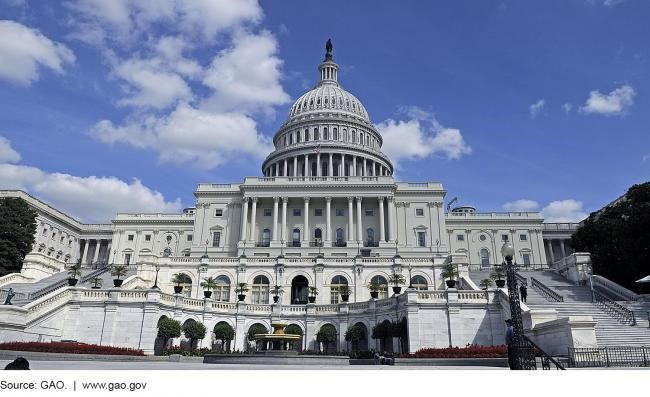Inspectors General: Independence Principles and Considerations for Reform
Fast Facts
The position of inspector general was established in federal agencies to prevent and detect fraud, waste, and abuse; conduct investigations; and more.
The IG Act of 1978 recognized independence as key to IG effectiveness. IGs follow the auditing standards that GAO sets, which seek to address threats to auditors’—including IGs’—independence.
Various legislative proposals to strengthen IG independence have been introduced in the current Congress, and several committees have requested information from GAO on this and related topics. This letter includes information on key independence principles and provides reform options Congress could consider.

Capitol Building
Highlights
What GAO Found
Ensuring the independence of inspectors general (IG) is critical to the credibility and effectiveness of offices of inspector general (OIG). The Inspector General Act of 1978, as amended, (IG Act) provides specific protections to IG independence to enable an effective and independent audit and investigative function for IGs notwithstanding their reporting relationship within the agency being reviewed.
The IG Act requires IGs to comply with standards established by the Comptroller General of the United States—the head of GAO—for audits of federal establishments, organizations, programs, activities, and functions. These standards are known as generally accepted government auditing standards (GAGAS). GAGAS recognizes the impact that threats to independence may have on the audit management team, including the IG. GAGAS therefore emphasizes the need for auditors to identify any threats to their independence and to put in place any appropriate safeguards needed to mitigate them.
The key GAGAS principles for OIG independence include the following:
- Audit organization independence. Audit organization independence refers to the audit organization's placement in relation to the activities being audited. GAGAS recognizes that an audit organization, such as an OIG within an entity, may be structurally independent if it is subject to certain legal protections.
- Independence conceptual framework. GAGAS establishes a conceptual framework that auditors use to identify, evaluate, and apply safeguards to address threats to their independence, including both independence of mind and independence in appearance.
- Independence of the inspector general. It is important that IGs consider threats to their independence and take appropriate action through safeguards to address any identified threats under the independence conceptual framework.
Based on existing requirements and standards, ongoing IG reform efforts could apply the key IG independence principles through a three-part evaluative framework:
- Legal protections related to the structure of an OIG, which are critical to preserving the independence of IGs, must be in place.
- IGs must evaluate threats to their independence and take steps to apply safeguards.
- Acting IGs must evaluate threats to their independence and apply safeguards related to the unique independence challenges of their positions.
Why GAO Did This Study
In the past 4 decades since enactment of the IG Act, IGs have played a critical role in enhancing government accountability. Congress established the OIGs to prevent and detect fraud, waste, abuse, and mismanagement in agencies' programs and operations; conduct and supervise audits and investigations; and recommend policies to promote economy, efficiency, and effectiveness. Various legislative proposals to strengthen IG independence have been introduced in the current Congress, and several congressional committees have contacted GAO to request information on this and related topics.
Congressional oversight plays a critical role in ensuring that IGs perform their statutory responsibilities and in preserving and strengthening IG independence. The IG Act requires IGs to comply with the Comptroller General's standards for their audits. GAO also plays a role in overseeing IGs by conducting audits of individual OIGs at the request of committees and members of Congress and by providing technical assistance to Congress on OIG issues.
This report (1) provides information on the key independence principles that auditors and audit organizations, including OIGs, must consider; (2) presents an evaluative framework for how these independence principles could be applied through ongoing IG reform efforts; and (3) provides reform options that Congress could consider.
Recommendations
GAO is providing reform options for Congress to consider to strengthen IG independence.
